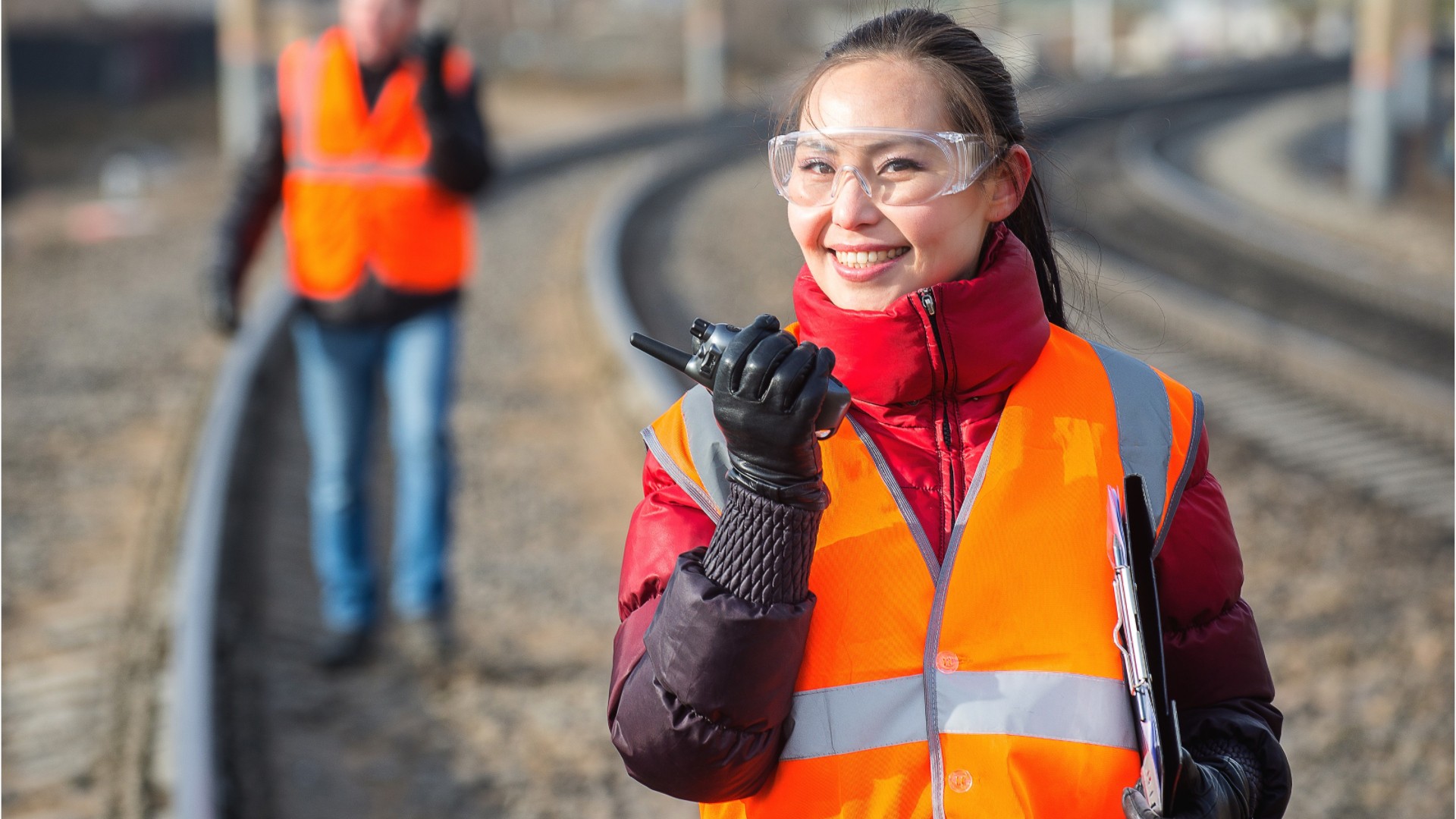Rail Yard Engineers, Dinkey Operators, & Hostlers
Engineer, Railcar Switcher, Railroad Engineer, Switchman
What they do:
Drive switching or other locomotive or dinkey engines within railroad yard, industrial plant, quarry, construction project, or similar location.
On the job, you would:
- Observe and respond to wayside and cab signals, including color light signals, position signals, torpedoes, flags, and hot box detectors.
- Inspect engines before and after use to ensure proper operation.
- Apply and release hand brakes.
Knowledge
Transportation
- movement of people or goods by air, rail, sea, or road
Safety and Government
- public safety and security
Business
- management
- customer service
Engineering and Technology
- mechanical
Skills
Basic Skills
- keeping track of how well people and/or groups are doing in order to make improvements
- talking to others
Problem Solving
- noticing a problem and figuring out the best way to solve it
Abilities
Controlled Movement
- quickly change the controls of a machine, car, truck or boat
- quickly decide if you should move your hand, foot, or other body part
Verbal
- listen and understand what people say
- communicate by speaking
Hand and Finger Use
- hold or move items with your hands
- keep your arm or hand steady
Attention
- pay attention to something without being distracted
Personality
People interested in this work like activities that include practical, hands-on problems and solutions.
They do well at jobs that need:
- Attention to Detail
- Dependability
- Adaptability/Flexibility
- Cooperation
- Concern for Others
- Self Control
Technology
You might use software like this on the job:
Inventory management software
- Railyard inventory software
- Softrail AEI Rail & Road Manager
Industrial control software
- RailComm DocYard
- Softrail AEI Automatic Yard Tracking System
Expert system software
- Positive train control PTC systems
Education
Education: (rated 2 of 5)
high school diploma/GED or
certificate after high school
usually needed
certificate after high school
usually needed
Get started on your career:
Find Training
Apprenticeship.gov
Job Outlook
Below Average
New job opportunities are less likely in the future.
Explore More
- Bus & Truck Mechanics & Diesel Engine Specialists
- Industrial Truck & Tractor Operators
- Locomotive Engineers
- Railroad Brake, Signal, & Switch Operators & Locomotive Firers
- Railroad Conductors & Yardmasters
You might like a career in one of these industries:
See more details at O*NET OnLine about rail yard engineers, dinkey operators, and hostlers.




